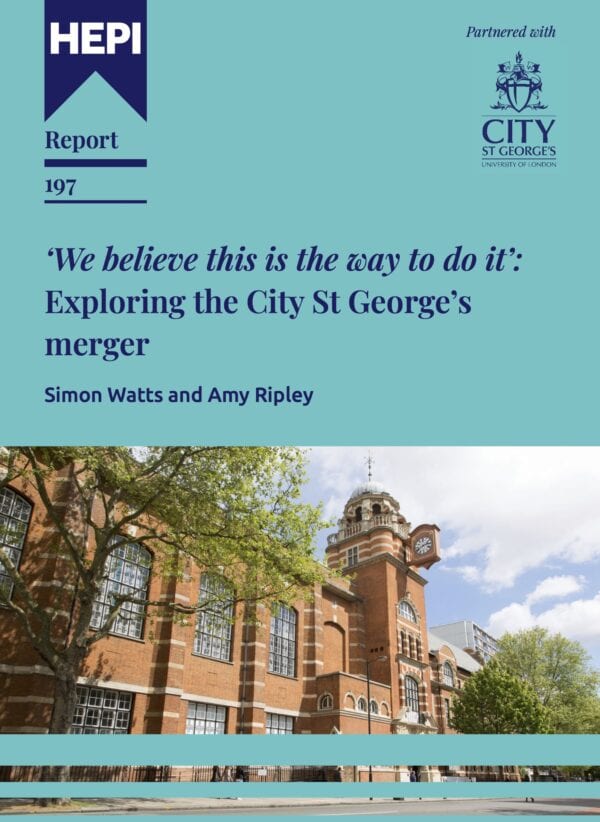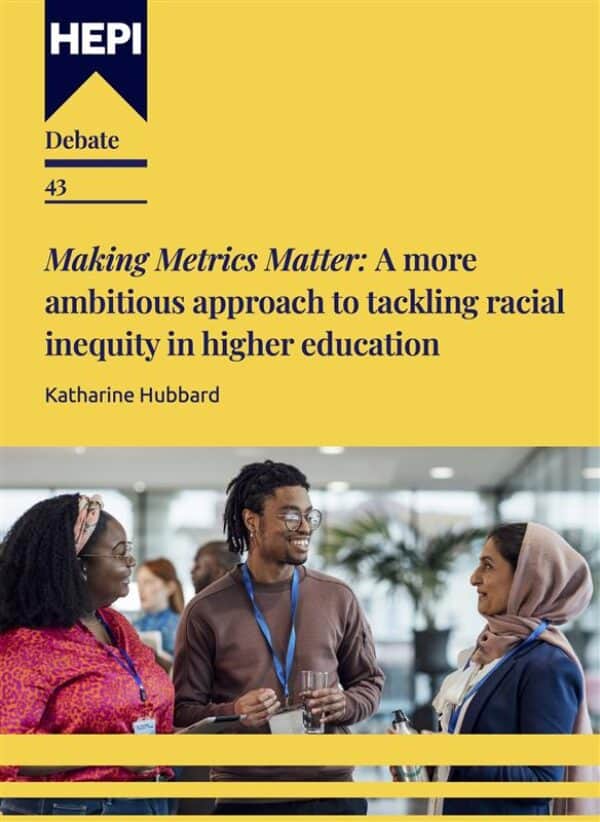Choice & Money: Post-16 Education
This blog was kindly authored by Joseph Morrison-Howe, former HEPI intern and recent graduate of the University of Nottingham. This blog is the seventh blog in HEPI’s series responding to the post-16 education and skills white paper. You can find the others in the series here, here, here, here, here and here.
Tuition fees rising with inflation serves as a reminder that going to university is a significant financial commitment for the student. In the recent Post-16 Education and Skills white paper, the Government commits to making higher education more skills focused because ‘there is a disconnect between what individuals choose to study and the needs of the economy, which limits people’s earning potential’. To achieve this, the Government seems to be leaning towards interventionalist policies. However, since the individuals themselves are involved in a financial decision, then presumably the Government’s desire for growth – that is, boosting average incomes – is largely not at odds with the individual. Therefore improving knowledge and access to information, which makes the individual’s decision more informed, is a viable alternative to interventionalist policy, and the Government’s commitment to providing graduate earning’s data on UCAS could lead the individual to choose courses with higher earnings should they want, which is in line with the Government’s aims whilst improving choice rather than curtailing it.
The Ministerial Foreword to the white paper states that the Government’s ‘defining mission’ of growth ‘relies on providing real opportunities through education and training that lead to real careers.’ In terms of policy, this aim seems to be taking the Government in an interventionalist direction, in an attempt to align what they see as the skills required in the economy with the skills being learnt in post-16 education. For example, by making the modular use of Lifelong Learning Entitlement conditional on the chosen course being aligned with the Government’s Industrial Strategy the Government hopes to create a workforce that is more productive in the jobs that the labour market demands. A more productive workforce is one associated with higher incomes, and so by pushing people towards the skills set out in their Industrial Strategy, the government hopes to achieve growth.
Interventionalist policies such as this, although moderate, can have adverse effects, however. Through the above policy, the Government might succeed in fixing the mismatch of skills learnt and skills demanded by the economy. However, the government cannot consider how happy an individual will be from entering a particular profession, and thus, by prioritising financial returns over choice, the welfare of individuals may be neglected.
It is worth remembering that for each individual, going to university is a financial commitment, but there are several reasons why it is difficult to make an informed decision about the financial aspect of going to university. The financial decision comprises the costs and gains of attending. The costs are difficult to determine because repayment is determined by future earnings, which at 18 is a distant and uncertain prospect. The financial gains are likewise uncertain because of the huge variety between courses as well as individuals, but this uncertainty can be limited. In England, there is a lot of data available on average graduate earnings by course and educational institution. This information is currently available on the Discover Uni website, but is very rarely accessed (see Imperfect Information in Higher Education). Perhaps the disconnect discussed in the recent white paper ‘between what individuals choose to study and the needs of the economy’ could be fixed to some extent by ensuring that when individuals choose what to study, they are in an informed position about earning differentials associated with different courses and institutions. This way, the prospective student has the capacity to make an informed financial decision, but still has complete freedom to study without it being a solely financial decision.
In the white paper, the Government has committed to integrating graduate earnings data into the UCAS website, ensuring the data will be seen and used by more prospective students, as proposed in Imperfect Information in Higher Education. This approach of helping individuals make an informed choice about what and where to study, rather than taking a more interventionalist approach, as a way of fixing the disconnect between study and the skills demanded by the economy, is valuable because it preserves individual choice. Someone who values high pay in return for their studies could use this graduate earnings data to ensure that the course they choose has the capacity to provide this. Someone who wishes to study for the sake of the subject, or someone who wants to study something that leads to a particular low-earning job because it will make them happy, has complete freedom to make this choice. This policy, by preserving choice and improving access to information, can promote government aims such as growth whilst letting people choose what they want.







Comments
Paul Wiltshire says:
The data won’t be looked at by prospective students on UCAS, for the same reason that it isn’t looked at on Discover Uni. The concept of Graduate career outcome statistics improving the HE market decision making of prospective students is a fallacy and is playing into the hands of the HE sector’s aim of keeping the %HE participation rate high. I will be releasing a paper on this topic soon which will be published on my Universitywatch .org website.
Reply
Charrua says:
This approach is not just short-sighted—it’s fundamentally unfair. We’re asking the same group of young people to pay for the consequences of decisions made by others, and we’re doing it while pretending we can see the future. But we can’t. Look at the U.S. right now: five years ago, computer science was marketed as the safest, smartest, most “future-proof” choices. Students invested their time, their money, and often their debt into that promise. And today many of those graduates are stepping into one of the toughest job markets. They did everything “right,” and the ground still moved under their feet.
That’s the reality: nobody can predict what skills the market will value in four years—let alone over the 50-year working life of an 16 year-old. Forcing young people with limited resources to commit to someone else’s guess about the future isn’t guidance; it’s coercion disguised as planning.
Even the last ancient Greek Oracle didn’t see it coming when choosing that job. If history teaches us anything, it’s that certainty is an illusion, and we should be very cautious about building entire lives on top of it.
Reply
Jonathan Alltimes says:
The important skill you should acquire is numeracy, that is, arithmetical operations including mental arithmetic and abstract reasoning using mathematical models or statistical models. All the higher paid occupations require higher standards of numeracy. It was not until the Gove reforms, that primary school teachers required at least a GCSE grade C. The teaching of numeracy is weak at primary and secondary schools. It is not simply failure to recruit teachers with mathematics degrees for secondary schools, it is the didactics of maths teaching. You do not need a mathematics degree or a statistics degree to teach GCSE maths. What pupils need to understand is that maths is modelling the world, it is a form of representation with equivalences between number and other sorts of maths and stats. Would be far better if we taught functional maths for everyday use in many occupations with reference to physical objects and then abstract objects like finance. In addition to functional maths, data analysis should be taught as so much information now resorts to data as evidence in hidden arguments, particularly through visualisations.
If you were not taught well, make it your responsibility to improve your understanding. Do not be ashamed to keep going back until you have understood the fundamentals and become proficient. You can learn maths by reading or watching about the history of how different maths models came to be invented.
Understand how to frame a problem with maths models and what maths and stats are doing, do not simply learn the methods rote.
Reply
Add comment